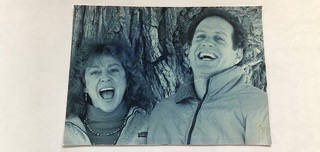In 2020, Fort Lewis College launched a Regenerative Food Systems Certificate to respond to the rising demand for a curriculum around sustainable food systems. Summer internships are an integral piece of the program, helping students broaden their knowledge of farming while building the leadership skills they’ll need to be decision-makers in the future of foodscapes. Often, these apprenticeships are unpaid, resulting in a disadvantage for students who need to work over the summer.
Thanks to a gift from the Natural Pathways Foundation, a summer of real-world practice unfolds for FLC students eager to dive deeper into the art and science of regenerative agriculture.
“The Natural Pathways gift opens new opportunities to create a more diverse and broader network of food champions,” Becky Clausen said, associate professor of Sociology & Human Services. “Interns can now be compensated for their time and expenses during their summer learning experience. This is critical so that students do not have to choose between paid work or following their dreams to learn about food and farming.”
This summer, one NPF-sponsored intern will be working with Fields to Plate farm in Durango, learning about growing vegetables and traditional varieties of Navajo Churro sheep. Another intern will be working in New York City on an urban farming project. They will receive $5,000 each to cover hourly wages, travel costs, and food and housing stipends.
Since 2002, NPF has been partnering with organizations “that educate people to become conscious, contributing citizens who recognize that humans are not separate from nature and are interdependent with all the natural systems of this planet.” NPF founders and mission executives Steve and Jessica Zeller have been working hard to align with likeminded local and global organizations since moving to Durango more than 40 years ago.
“He likes helping people,” Jessica said.
“And she likes helping the planet,” Steve added.
Drawn to the Four Corners “by love, nature, and a love of nature,” the Zellers are passionate about celebrating and protecting the region’s extraordinary treasures, from soaring ospreys to the abundance of Indigenous culture and wisdom. Over the years, they’ve supported dozens of nonprofits and FLC programs, like the SkyWords Visiting Writers Series. They’ve also been the driving force behind a variety of initiatives. In 1984, Steve helped found Durango’s chapter of Big Brothers, Big Sisters, while Jessica has done everything from teaching the first yoga class at FLC to working in FLC’s Counseling Center.
In 2019, they attended a Mellon Grant-sponsored speaker series at FLC to hear Tom Goldtooth, executive director of the Indigenous Environmental Network, present on the Rights of Nature. Steve recalled Goldtooth’s call to action that shifted his awareness as a humanitarian, philanthropist, and spiritual seeker.
“He [Goldtooth] said, ‘learn to grow your own food,’” Steve said. “And I believe he was referencing what’s necessary for us as humans to heal, to unite, and to see a new way forward.”
After learning about the Regenerative Food Systems Certificate from Clausen and Keri Brandt Off, chair and professor of Sociology & Human Services, the Zellers realized they could help accelerate this radical movement.
“We believe that the time is ripe, potent, and fertile to plant seeds for a global vision,” Jessica said. “If we can drop a significant rock into the pond by supporting this program, we can help nurture leaders toward a new way of thinking that connects with the wisdom that’s already there. We can help transform human consciousness to be more inclusive and recognize that we’re all united in our mission to protect the planet.”
“This is one way we can serve the people on the front lines, and in turn receive the great joy and benefit of watching the impact grow,” Steve said.
View original article here:

